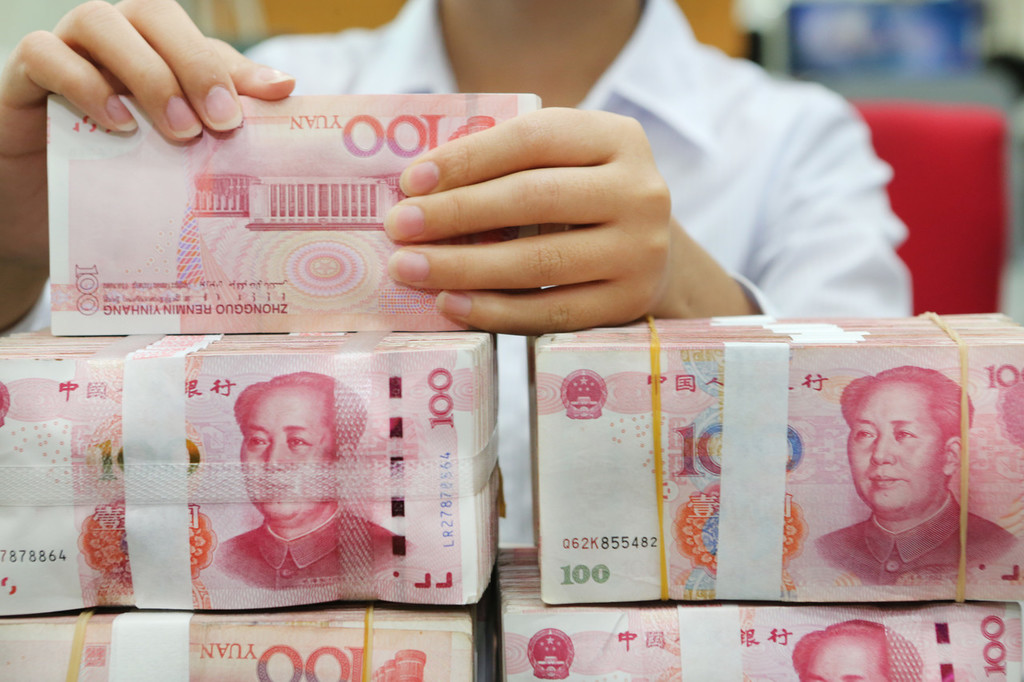Capital account trading to see further opening


Strong-performing renminbi provides window of time for forex regime reform
Stable performance of the Chinese currency compared with global counterparts may pave the way for further liberalization of cross-border capital transactions, a long-lasting reform the central bank has always cautiously promoted, according to policymakers and advisers.
Foreign exchange investors recently upgraded their expectations for the renminbi — from a downward valuation in 2018 to a "moderate appreciation" this year — on growing optimism vis-a-vis US-China trade negotiations and expectations of a weaker US dollar.
A strong-performing renminbi could provide a window of time to push forward forex regime reforms which began in the 1990s and are aimed at ultimately allowing unhindered currency trading, whether via cross-border trades or capital transactions, analysts said.
Ye Haisheng, director of the Capital Account Management Department at the State Administration of Foreign Exchange, said that the "principal line" of the reforms is to gradually "ease constraints on capital account transactions by introducing and fostering capital market instruments".
For domestic institutions issuing bonds overseas, regulators are considering easing or even canceling current registration requirements. Restrictions on domestic companies' other cross-border financing activities will also be eliminated in the future. These measures will reduce corporate financing costs, Ye said, without providing a specific timetable.
He also said that to further open the securities market, it was necessary to first streamline the existing equity and bond market channels and remove "unnecessary limits".
Ye added that regulators will also promote overseas institutions to issue securities in onshore markets, as well as improve regulations of Panda bond issuances and red-chip listings — stocks of Chinese mainland companies incorporated outside the mainland and listed in Hong Kong.
In the first quarter, the renminbi strengthened about 2 percent against the greenback, after depreciating 4.79 percent in 2018.
The volatility of offshore renminbi trading fell to its lowest level since late 2017 on Friday when the spot rate stood at 6.55 yuan per dollar. Economic indicators in March suggested a stronger renminbi, including a five-month consecutive rise of foreign exchange reserves and a five-month higher consumer inflation rate.
The turning point in the renminbi exchange rate outlook emerged after the US central bank undertook a shift in monetary policy. At the beginning of 2019, the US Federal Reserve shelved previous plans for more rate hikes and moved to a "patient" stance, given the growing signs of weakening global growth.
The Fed stressed a high degree of uncertainty over policy prospects in its March meeting minutes.
"As the Fed's interest rate rises are coming to an end, and US economic growth is slowing, the US dollar is losing support for further appreciation, which means less depreciation pressure on the Chinese renminbi," said Lian Ping, chief economist at Bank of Communications. He predicted the exchange rate may hover at around 6.5 yuan per dollar and is unlikely to approach or drop below the 7 yuan per dollar level.
Zhong Zhengsheng, director of macroeconomic analysis at CEBM Group, said the renminbi exchange rate will moderately strengthen from a stable base, which could provide benefits for domestic monetary policy, financial regulations and the implementation of macroeconomic measures.
"But still, there are plenty of uncertainties, and fluctuations are very normal. I don't worry about the influences (on the renminbi value), but you need to manage the fluctuations. It requires more instruments to hedge risks," Daniel Schmand, chairman of the International Chamber of Commerce Banking Commission and head of trade finance at Deutsche Bank, told China Daily on Wednesday.
"At the moment, if any adjustments are needed in foreign exchange management tools, it is believed Chinese authorities will react swiftly and flexibly, as that has been done in the past," he said.
Yi Gang, governor of the People's Bank of China, the central bank, said in March that the monetary authority will supplement its options by increasing risk hedging derivatives this year.
Along with the opening process and a rising proportion in global trade and investment, the renminbi's performance has weighed much on investors' decisions, Schmand said. "For offshore long-term infrastructure investments, especially under the Belt and Road Initiative, the renminbi is becoming an important financing currency. And it will continually develop into an international currency."




































